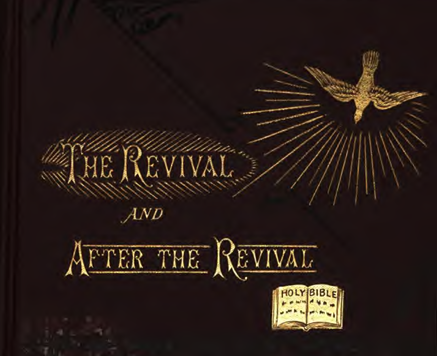Converts must understand that the essential element in religion is not “good feeling,” but “good willing.” It is Divine truth at work in the soul, beyond the intellect, among the affections, and in the will. It is the choice and appropriation of truth by the whole person. There is a “good willing” that is nothing more than a “wish,” a mere ideal shining in the soul as the infinite depths of space and the glorious sun are mirrored in the pool of muddy water, which appears fathomless but is only a finger’s depth. True interior life is, in essence, a matter of will—the militant will that fights the good fight and the victorious will that triumphs. It is not in the shining leaves or the swaying branches of the oak, but in the deep roots fastening themselves in the soil and bringing trunk and twig into life-giving connection with the earth—a connection kept up whether the atmosphere above is silent or tempestuous, dark or radiant, frozen as in January or fiercely hot as in July. Religion does not rely on emotion, but it is sometimes strongest when the soul lives by faith rather than emotion, by “faith rather than sight.” True faith brings feelings, whether they arrive early or late, but faith is what keeps the soul alive, whether there are good feelings, bad feelings, or none at all—faith that works, faith that waits, faith that loves, and faith that conquers. Good feelings may come from wine, coffee, or opium; from some temporal success or some anticipated earthly joy; from an abnormal state of the nervous system; from the mystic influence exerted by a powerful will; from the charm of music; or from natural sympathy. Indeed, good feelings may come (in connection with a religious meeting) when there is no religion at all. Religion is an inner preference, decision, and habit, a principle, and a way of life—much like love, a mother’s love for her child, a fact, a force, and an immutable principle; a root that endures whether it experiences joy or sorrow, elation or depression; a force that exists even when the specific object is not manifest in consciousness, independent of emotion and circumstance. It may be fervent in January, during the Week of Prayer, or during the special revival services that follow, but it is also firm in June and faithful in August, and it does not depend on the preacher’s power or peculiarities, the class leader’s attention, the notice of the rich church members, the excitement of the prayer meeting, or the personal interest of the departed evangelist. It does not depend upon what the other young converts do or favor, or on the power of the old songs that are sung and resung, once because they were “new,” then because they were “lively,” and now because they are “familiar.”
By J. H. VINCENT
Updated 2023 Nathan Zipfel
